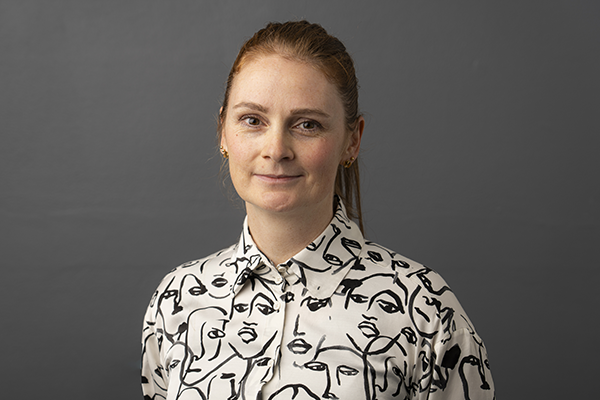Amalie Timmermann
Research leader

Project title
Breastfeeding and environmental chemicals. Can and should all mothers breastfeed?
What is your project about?
With this project, I want to understand the interplay between environmental chemicals and breastfeeding. Breastfeeding has numerous beneficial health effects, but environmental chemicals can affect women’s ability to breastfeed. In addition, some chemicals, including per- and polyfluorinated substances (PFAS), are transferred with breast milk, and these chemicals can harm children's immune system. The aim of my project is to understand the role of environmental chemicals in relation to breastfeeding and subsequent child health. By using biological measurements and questionnaire data from mothers and their children in Denmark, Norway and the United States, we will identify environmental chemicals that affect women’s ability to breastfeed and explore potential interactions between PFAS exposure and breastfeeding in relation to children’s immune function.
How did you become interested in your particular field of research?
My interest in epidemiology and observational studies emerged, when introduced to biostatistics during my first year at university. "Real world evidence" has become a new buzz word, but I like the term for its comprehensiveness. Instead of doing artificial experiments, we investigate the world as it is.
My fascination with the immune system dates back to my teenage years when I learned about the crucial role of the body's immune cells, and my interest in environmental medicine came in 2012 when I first heard about PFAS and its effects on the immune system. I did my PhD thesis on PFAS, and while working on my PhD, I became a mother and found a new interest in the complexities of breastfeeding. Now, I have the privilege to combine all these interests in my research.
What are the scientific challenges and perspectives in your project?
When working with observational studies, we are limited by reality: We can examine the impact of chemicals only at the levels individuals in the studies are actually exposed to. No one is entirely free from exposure, but we can assess the risk of increased exposure.
The advantage of working with observational data, is that our results are directly applicable to the real world. With this project, we will gain new knowledge about which chemicals affect breastfeeding. In addition, we will combine two types of studies, so instead of looking at the harmful effects of chemicals and the beneficial effects of breast milk separately – we examine them together, providing a more nuanced understanding of how PFAS and breastfeeding collectively impact children's immune function.
What is your estimate of the impact, which your project may have to society in the long term?
New knowledge about environmental chemicals and breastfeeding will aid authorities and decision-makers in assessing health risks of environmental chemicals exposure. Ultimately, this knowledge will help form the basis for advice and legislation to limit our exposure to harmful chemicals.
Which impact do you expect the Sapere Aude programme will have on your career as a researcher?
Besides being a great acknowledgment, being part of the Sapere Aude: DFF Starting Grant-programme means that I can prioritize the research, I think is most important. The grant will enable me to gather a research team, so that we together can advance this field of research, and I will have the opportunity to grow as an environmental epidemiologist. In my view, environmental factors have not been given enough emphasis in public health research, and with a Sapere Aude grant, I will help put it on the agenda.
Background and personal life
I enjoy building things, and when my family and I moved into a house, I acquired a circular saw and other noisy tools for my building projects. If time allowed, I would build more cabinets and shelves for our home. Currently, my building projects mainly involve constructing LEGO Hogwarts and police stations with my kids, which I also find quite enjoyable.
While I grew up in the Aalborg area, I have lived in Copenhagen most of my adult life. For shorter periods, I have lived in South Africa, Uganda, and the United States, and I dream of one day living abroad again. For now, I'm happy collaborating with talented researchers around the world.
View all research leaders here
Research institution
University of Southern Denmark
Research field
Environmental epidemiology
City of your current residence
Copenhagen
High school
Aalborg Katedralskole
